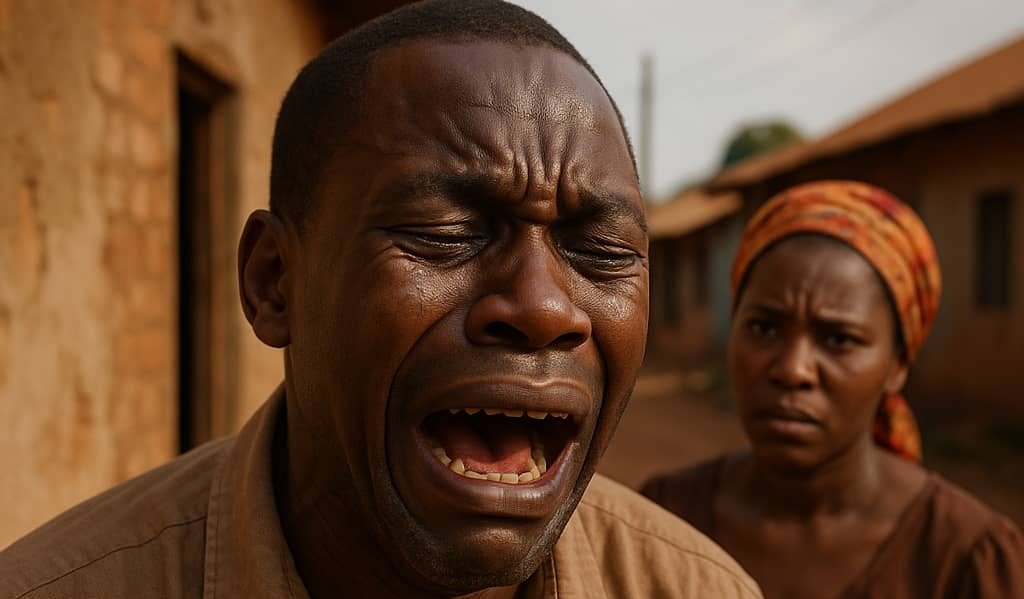By Isaac Christopher Lubogo
> “Etima etakuba tolimanya nti waluma.”
(If the heart doesn’t ache, you won’t know that you’ve been wounded.) – Lusoga Proverb
Prologue: The Sound of Trust Breaking
There are wounds no one sees. They do not bleed like bullet holes or swell like ulcers. But they cut deeper. These wounds wear no bandages; they live behind smiles, in the hushed corners of friendships that turned into fangs.
In Uganda’s soil—red with memory and betrayal—we find countless untold stories. But allow me to unearth just one. One that speaks for the many. One that bears the scent of dust, betrayal, and resurrection.
Part One: The Judas From Within – The Story of Joseph Kato
Joseph Kato was not just a name in Nansana. He was a brother, a helper, a glue that held his circle together. Or so he thought.
In 2019, after losing both parents to cancer in quick succession, Joseph inherited a modest piece of land along Hoima Road. With grit, he built a thriving boda-boda spare parts shop. He did not hoard his fortune—he shared it. He paid school fees for his younger cousins, fed his neighbors, and offered jobs to his closest friends, including one he called his “blood,” a man named Patrick.
Patrick, whose mother Joseph had once carried on his back to Mulago Hospital when she collapsed, whose rent he paid during lockdown, whose court case he bailed him out from—yes, that Patrick.
And yet it was Patrick who betrayed him.
In 2021, Joseph was arrested. Fraud. Forgery. Land grabbing. His shop was broken into and emptied. His documents—altered. His land title—reported as a forgery.
The mastermind? Patrick. His Judas.
When Joseph sat in Luzira Prison, rotting in disbelief, the one visitor he longed to see never came. Instead, word reached him that Patrick had opened a newer, shinier spare parts business—right on the land Joseph once proudly called his inheritance.
That was when Joseph stopped eating.
Not because of the beans and posho. But because when a man’s soul breaks, food cannot glue it back.
Part Two: When Your Own Blood Thirsts for Yours
Joseph was not alone. Across town in Makerere-Kavule, a brilliant young woman named Mary Nakaziba was betrayed by her fiancé and her own sister—at once.
Mary, a Makerere graduate in Social Work, had spent years working odd jobs, saving every shilling to help her younger sister Caroline through university. Mary delayed her own dreams. She postponed marriage. She sacrificed.
But love, too, betrayed her.
In 2023, days before her traditional introduction (kwanjula), Mary discovered that her fiancé Daniel had impregnated none other than Caroline. And the two had eloped to Kenya.
Mary’s dowry cow remained tied in her uncle’s kraal. Her gomesi folded. Her heart? Shattered into unrecognizable pieces.
The worst part? The betrayal was not a sudden stab—it was a slow, calculating scheme. Family meetings were held. People chose sides. And the same family Mary built with sacrifices now called her “bitter” and “unforgiving.”
Part Three: The Psychology and Pathology of Betrayal
What makes betrayal so gut-wrenching isn’t just the loss—it’s the misplaced trust. The emotional investment. The delusion that those closest to you are your safest space.
Betrayal ruptures the nervous system of trust. It triggers complex trauma—not from strangers, but from familiar hands that once patted your back while sharpening blades behind you.
As the philosopher Friedrich Nietzsche once said:
> “I’m not upset that you lied to me, I’m upset that from now on I can’t believe you.”
In the Ugandan context, where communal life and kinship are paramount, betrayal is not just personal—it is existential. It affects your place in the clan, your sense of belonging, your very name.
Part Four: Rising Again – How to Deal With Betrayal
1. Grieve It Without Shame
You are not weak for feeling broken. You are human. As Psalm 55:12 says:
> “If an enemy were insulting me, I could endure it… but it is you, a man like myself, my companion, my close friend.”
Let your tears cleanse the betrayal, not imprison you in bitterness.
2. Do Not Retaliate—Reclaim
Joseph Kato, when released after six months (thanks to a pro bono advocate who believed him), did not retaliate. He started a small workshop in Bwaise teaching unemployed youth how to repair motorcycles.
Forgiveness is not forgetting. It is remembering and choosing to heal anyway.
3. Reframe Your Circle
Rebuild your inner circle with those who earn your trust—not those who expect it by blood or proximity. Let character replace kinship.
4. Let Your Pain Birth Purpose
Mary Nakaziba, the woman left by her sister and fiancé, now runs a support group called “Silent Sisters Uganda” for betrayed women. Her pain became her pulpit.
5. Let God Weigh the Scales
Vengeance is heavy to carry. Let God lift it. As Proverbs 20:22 declares:
> “Do not say, ‘I will repay evil’; wait for the Lord, and He will deliver you.”
Epilogue: The Scars That Sing
Betrayal is a valley, yes—but valleys have rivers. And rivers move.
To anyone reading this who has been betrayed—by a friend, a family member, a lover, a leader—know this:
You are not alone.
Uganda’s red dust holds the cries of millions just like you.
But it also holds something else: resilience.
From Luzira to Lira, from the tears of Joseph to the silence of Mary, we are reminded:
> “What they meant for evil, God can still use for good.”
So let the pain shape you—but never define you.
Let the betrayal break your illusions—but never your destiny.
Let your scars become your story—not your prison.
Because the same people who watched you fall…
will one day have to watch you rise.








